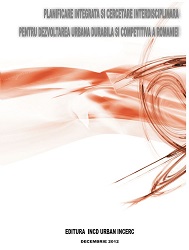
We kindly inform you that, as long as the subject affiliation of our 300.000+ articles is in progress, you might get unsufficient or no results on your third level or second level search. In this case, please broaden your search criteria.

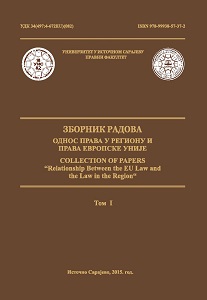
The author analyzes legal solutions which regulate workers’ right to participate in the management of enterprises in the member states of the European Union and in former Yugoslav countries, as well as in enterprises which operate in at least two member states of the European Union.Functioning of the works councils, which is one of basic models of workers’participation, has been analyzed in the paper.The author analyzes national and the European Union legislations, and concludes that there are some differences in the forms of realization of workers’ participation, in the spheres of the composition of works councils,their election and authorities, but the basic principles are essentially the same and could be centered on the conclusion that workers have the right to be informed and consulted.Comparing national legislations of the member states of the European Union and those of the former Yugoslav countries, the author suggests solutions which could improve workers’ right to participation.
More...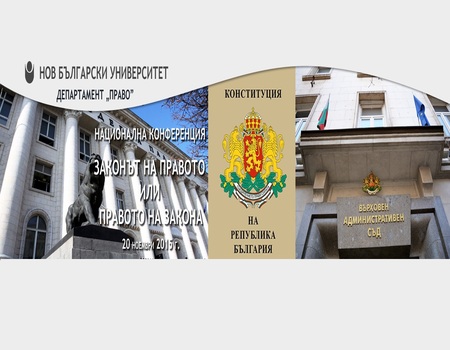
This article renders problematic the prosecutor’s supervision over public administration in contemporary Bulgaria and explores what limitations need to be delineated so that such supervision to be in line with the rule of law. The “general prosecutor’s supervision” is a fundament of socialist administrative law, grounded in the political ideas of Leninism. After the adoption of the democratic Constitution in 1991 that institute passes over to the contemporary administrative law without any theoretical or practical debates for its place in the paradigm of the rule of law. The Prosecutor’s office continues to exist in the same old socialist model as a united, centralized, hierarchical system in the branch of judiciary. While the prosecutor’s supervision is no longer theorized as a general one,the powers of the prosecutor, especially the supervision over public administration, have not been substantially constricted. The article raises the question whether the existing prosecutor’s supervision over public administration in Bulgaria actually turns into prosecutor’s supervision over the citizens and organizations, on one side, and over the court, on the other side. Moreover, the research tackles the balance between the public interest and human rights in the complex relationship between the administration and citizens and offers for debate certain formulas for laying down adequate limitations of the prosecutor’s supervision over public administration.
More...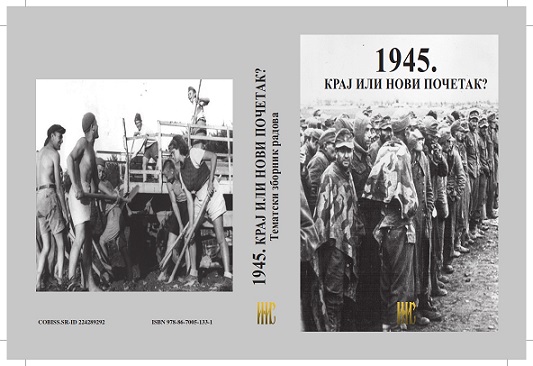
The inner make-up of the Yugoslav state was changed after WWII by the decision of the Communist Party of Yugoslavia that had come to power in the country. In keeping with the decisions of the second session of the interim partisan parliament (the AVNOJ) federal order was established with six constituent republics. However, the new authorities adopted no criteria how the borders between the republics in the new federation were to be drawn. Thus the solution of this important matter remained in the hands of the Party leadership that had to implement it on the Soviet model. Delimitation between federal republics was made with no legal procedure, without passing any law whatsoever and without participation of leaderships of republics concerned. In the course of drawing borders neither ethnic not historical principles were applied. By setting up Bosnia-Herzegovina as a multi-ethnic republic, the ethnic principle was given up, whereas historical principle was not applied consequently in the case of Serbia because this federal unit was divested of some of the territories belonging to her as she entered Yugoslavia and that had become hers after the wars of liberation 1912-1913. Thus considerable part of the Serbs remained outside their ethnic republic. In keeping with the new slogan of “brotherhood and unity” and using the flamboyant rhetoric in vulgar propaganda it had launched in public, the ruling party downplayed the importance of the borders between republics. It was pointed out that in the new federation of equal peoples the borders would be of secondary importance and that they would rather connect than divide peoples. The leadership of Serbia, dissatisfied with the way the borders had been drawn tried to intercede with the aim of rectifying them, pointing out at the damage done to the Serbian people. This objection, as well as objections of part of the legal opposition comprising the pre-war political parties, failed to influence significantly the already adopted solutions.
More...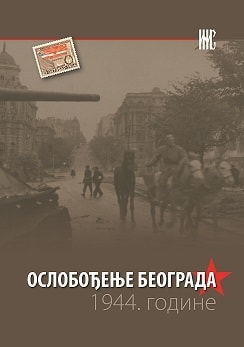
One of the main features of the German administration in Serbia in WWII was the fact that the occupation policy wasn’t directed from one center. Since the agencies of the military administration were not under unitary command in Serbia, nor did they have clearly delimitated spheres of action, their influence on occupation policy depended on the authority of their positions, i.e. on the place of the superimposed agencies in the complex pecking order of power in the Third Reich. Internal relations between individual occupation factors and the power of their influence were of importance for concrete implementation of the occupation policy and its consequences for the population. The spheres of activity of the occupation administration were divided among four agencies which fulfilled occupation tasks parallely without mutual coordination and often with conflicting interests. Each agency had its main office in Berlin and each had to fulfill its tasks directly, sidestepping the military administration in Serbia. Since security of the troops was endangered by a strong resistance movement and since due to the long protracted war the needs of German war economy steadily increased, the police and economic administration played the leading role in the hierarchy of German occupation agencies.
More...
The defeat in the April War, the break-up of the Yugoslav state and the genocide against the Serbian people were the facts the occupied Serbian society had to face already in the first months of occupation. Realizing the difficulty of the situation, the collaborationists strove to improve it by aiding and supporting the occupiers, believing they would by and by recognize that cooperativeness and reward it by improving the situation of the Serbian people in the German system of the „New Order”. However, in the plans of the Third Reich, there was no place for such opinions. The occupied territory was interesting for them only inasmuch it needed as small forces as possible to keep peace and order in it, with the aim of exploiting it as thoroughly as possible. In that context, although local government was set up to help them run the administration, a complex occupying apparatus was also put in place which interfered drastically with the functioning of the local organs, exercising strict surveillance and control over them. Mistrust of local population, regardless of the degree of collaboration remained the lasting trait of the German occupying apparatus in Serbia.
More...
The work represents a Historiographie description of Belgrade during the 1944 and 1945. In addition to portraying the city immediately after the liberation, the author describes the war damage on houses, and cultural and industrial monuments and buildings in the capital. The city's cultural features are presented along with its communal capacities and the organization of providing supplies for the inhabitants, in addition to information regarding health service, education, traffic, etc. Local sources are combined with the reports of Fitzroy Maclean, Chief of the British Military Mission, who entered Belgrade a few days after the liberation.
More...
Parallel with the „wartime“ formation of the „New“ or Tito’s Yugoslavia and its armed forces, the process of founding of the security apparatus was also going on. The fact that the war against the occupiers was at the same time a civil war and a thoroughgoing socialist revolution, additionally stressed the importance of well organized and well trained security and intelligence agencies. No doubt, ties established with USSR during the war as well as the known experiences of the October Revolution, civil wars in USSR and in Spain, had a strong impact on the way the Yugoslav security apparatus was formed and used. The split with USSR which came about in 1948 and which influenced this sphere too, would entail stressing autochthonous development or unconscious neglect or total omission of the foreign (speak: Soviet) influence in subsequent research.
More...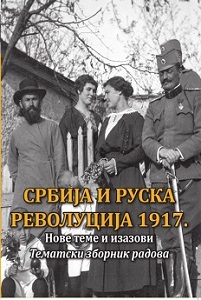
In Russian and international circles, two lawyers, professors at Saint-Petersburg University – Michael Pavlovich Tchubinskij (1871 – 1943) and Vladimir Dmitrievich Pletnev (1878 – 1954), who emigrated to Belgrade in 1920, gave certain contribution to the later realization of the “Yugoslav principle of uniting”. In 1912, “Slavic Committee” in Petrograd (founded in 1909) was transformed into “Association of Slavic Scientific Society”, which in 1913, because of the war in the Balkans turned to politics. Their activities were met with immediate condemnation of the Government. Then, another “group of progressive scientists, professors and public workers interested in Slavic questions” was formed. Professor M. Tchubinskij was a regular chairman at these meetings. Both M. Tchubinskij and V. Pletnev published their texts in “Interests in Balkans and Government Report” collections of articles (1913). Prof. M. Tchubinskij’s report titled “History of Serbo-Croatian Relations and Intended Union” was published in “Collection of Articles Proceeding Dedicated to A. Shakhmatov” (1916). Yugoslav Committee reissued it in French (“L’Union serbo-croate”, Paris, 1917). For this work, prof. Tchubinskij was awarded St. Sava decoration of the 3rd order by H.R.H. Crown Prince – Regent of the Kingdom of Serbia.
More...
The adoption of the joint declaration of the Government of the Kingdom of Serbia and the Yugoslav Committee in Corfu in July 1917 is closely related to the February revolution in Russia which strongly influenced the policy changes between the coalitions of the powers in spring and summer of 1917. These changes also created favourable conditions for declaration signing, the most significant being: the collapse of the tsarist regime, which had supported Serbia; the need to review the war objectives, taking into account the possible peace negotiations (the Sixtus Affair); relative liberalization in Cisleithania after the death of Franz Josef (in November 1916) and the adoption of the “trialistic” May Declaration (1917); instability of the general military situation with the tendency to deteriorate for the Entente. When drafting the text of the declaration, Nikola Pašić took all these facts into account. So, we can say that the Corfu Declaration was a forced document, as well as the Nish Declaration (December 1914) which appeared earlier and was also motivated only by the utilitarian causes.
More...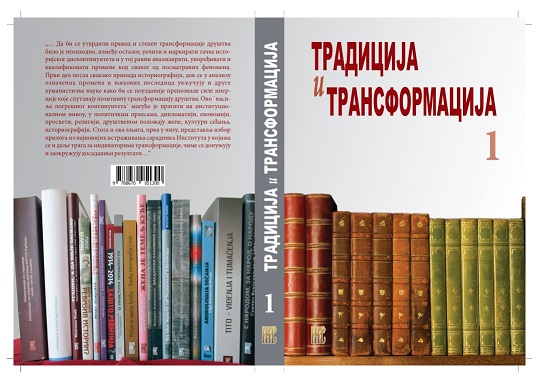
The resolution of the territorial dispute between Italy and Tito’s Yugoslavia, as a result of the London and Osimo agreements in 1954 and 1975 respectively, paved the way for improving the Yugoslav-Italian relations. The process of normalization encouraged close political and economic cooperation between the two countries as well as considerable Italian cultural influence in Yugoslavia. Besides, the Yugoslav-Italian rapprochement was reflected in frequent high-level contacts between the political elites of Yugoslavia and Italy during the 1960s and 1970s. During his visit to Yugoslavia, in October 1979, the Italian president Sandro Pertini discussed with the Yugoslav party and state leader, Josip Broz Tito, the most important aspects of the Yugoslav-Italian relations as well as the burning global issues, such as the situation in the Middle East and Indochina, the détente, the non-alignment as well as the Italian role in the European Economic Community. The transcripts of the conversations between the two veteran politicians and their teams, which took place on 11 and 12 October 1979, indicate the highest level of mutual cooperation as well as their similar attitudes towards a broad spectrum of global topics, such as the détente, the Non-Aligned Movement, the situation in the Middle East and Indochina. The two presidents signaled their readiness to sett le the remaining disputes between the two countries, in particular concerning the rights of the Italian minority in Yugoslavia as well as the Croatian and Slovenian communities in Italy. Pertini and Tito expressed satisfaction with the improvement of the relations between Yugoslavia and Italy despite their opposite ideological preferences and their participation in the different global coalitions – the North Atlantic Alliance and the Non-Aligned Movement respectively.
More...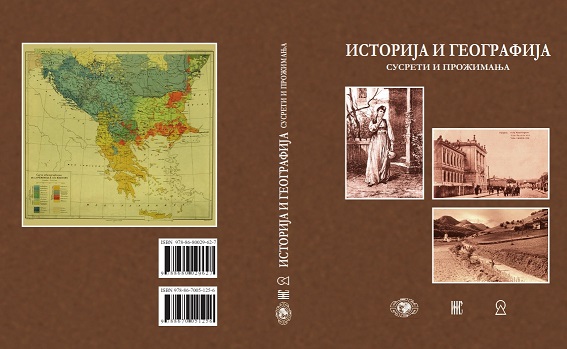
The purpose of the analysis is focused on historical as well as on multidisciplinary approach to the study of phenomena, causes, development and consequences of regionalism in the EU member states. Essentially regionalism implies a social movement which by the politicization of certain territorial distinctiveness of the region and the resulting regional identity is aimed to obtaining a higher degree of political autonomy i.e. tо the realization of certain form of regional autonomy and the decentralization of government. With regard to the fact that territorial specificities of the region can be different, i.e. cultural-historical, ethno-linguistic, territorial and economic, the analysis indicates that there is no uniform rules of the historical development of regionalism in some European countries. While some regions as „historical“ have roots in ancient times, others were created during the feudal period and the formation of a series of territorially and functionally fragmented states forms, being an obstacle for the establishment of a centralized nation-state. We analyzed the process of creating the European nation-states during the 17–19 century and explained the centralized approach and hierarchical vision of the relationship between the central government and the regions, which was dominant in the territorial politics until the last decades of the 20th century. Special attention was paid to the development of regionalism and regionalization in many EU member states from the 1970s and current models of regionalism were analyzed. It was concluded that regionalism as a political movement, having different causes, inevitably established different requirements for a particular aspect of territorial autonomy with the specific legal and political content. Contemporary experience of regionalization indicates that the effects of regionalization as a mean of articulating and amortization of regionalist tendencies are dependent on the historical causes and conditions that have led to regionalism.
More...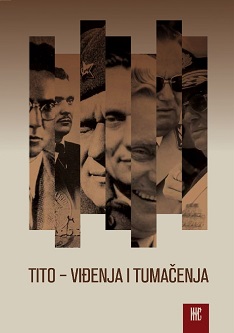
The interpretation of the personality of Josip Broz Tito based on researches can hardly be put into accordance with ideological opinions aired both during his historical activity and after the colapse of socialism and Yugoslavia. Therefore there is a fundamental need to contextualize the personality of Josip Broz Tito within the framework of Yugoslav and world history in which he also has his place, particularly in the context of break with Stalin in 1948. The appearance and activity of Josip Broz Tito was no accident in the Yugoslav history. It is the expression of contradictions of social development in the interwar period with historical roots that are much deeper than the revolutionary change of power in 1945. In that context, it isn’t enough just to register that the personality cult existed, but it is necessary to explain its genesis and the very possibility of the cult’s existence. PerspectivesonTito'spersonality are various: the wartime commander, Yugoslav and world statesman, renegade of the international communist movement at the time of its unanimity, decades-long Party chief. The communist component is without doubt decisive in viewing Tito. It is decisive both in domestic political and international context that was marked by the rift of 1948, but also by not giving up the communist idea. Particularly interesting is the perspective viewing Tito in the context of domestic politics, as a leader of a socialist country that changed fast - to be sure, within the given socialist formula. Without insight into the starting point of the results after 1945 every assesment of those results would be inconvincible. However, undisputed will remain the fact that in many ways progress was made that doesn't cast even a shadow of doubt for anyone realistically assessing an epoch and its protagonists. Especially important is the capability of Josip Broz Tito to establish a direct consensus, bypassing institutions even of the party-state. This was the result of social resonance with which the ideas of social equality, self-management and brotherhood and unity met. From that corner he received support to remove from the Party those „who wouldn’t obey" and those who were „putting spokes in our wheels". Indespensible for an assesment of political activity of Josip Broz Tito is his balancing ability in which he excelled. This goes both for domestic and foreign policy and particularly for the relation between the ideological dogma and political practice. It was the matter of objective complexity and therefore it cannot be simplified even in interpretation without damage to historical cognition.
More...
Macedonian historiography, which was part of Yugoslav historiography cherished Josip Broz Tito’s cult. After the independence of Macedonia there was a tendency in historiography for demystification of cults and for reevaluation of Tito’s political and historical role. In contemporary Macedonian historiography positive stereotypes of Tito are prevailing, lacking vulgar degradation.
More...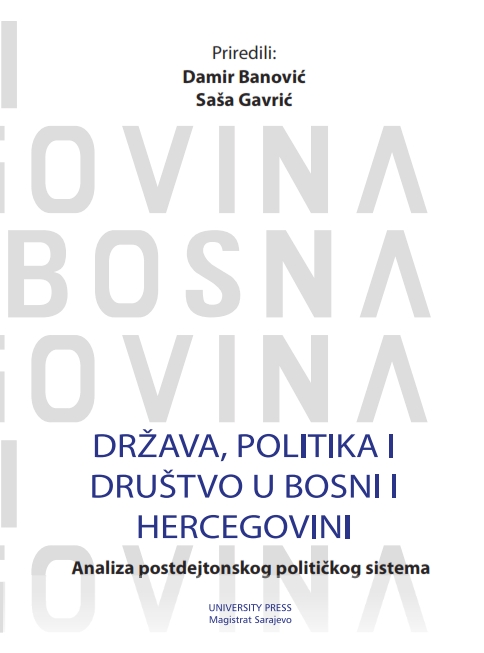
Kriteriji za članstvo također zahtijevaju da država kandidat mora stvoriti uslove za svoju integraciju kroz prilagođavanje svojih upravnih struktura, kao što je naglašeno na evropskom vijeću u Madridu 1995. godine. iako je važno da se zakonodavstvo evropske unije prenese na državno zakonodavstvo, još je važnije da se zakonodavstvo provodi na učinkovit način, putem odgovarajućih administrativnih i pravosudnih struktura. to je preduslov za međusobno povjerenje koje zahtijeva članstvo u EU. [...]
More...
Članstvo u Evropskoj uniji označeno je kao jedan od najvažnijih ciljeva vanjske politike Bosne i Hercegovine, čija realizacija je započeta Procesom stabilizacije i pridruživanja. navedeni proces je rezultat novog pristupa Evropske unije zemljama jugoistočne Evrope s ciljem kvalitetnijeg pružanja pomoći i omogućavanja brzog napretka u evropskim integracijama. dobrovoljnu harmonizaciju bosanskohercegovačkog zakonodavstva, započetu još 2000. godine, danas je zamijenilo obavezujuće usklađivanje domaćih propisa. ispunjavanje kriterija kojima je uvjetovano punopravno članstvo predstavlja prioritet Bosne i Hercegovine, koja trenutno ima položaj potencijalnog kandidata za članstvo u Evropskoj uniji. Pravni okvir napretka Bosne i Hercegovine u procesu evropskih integracija određen je Sporazumom o stabilizaciji i pridruživanju koji je potpisan u junu 2008. godine.
More...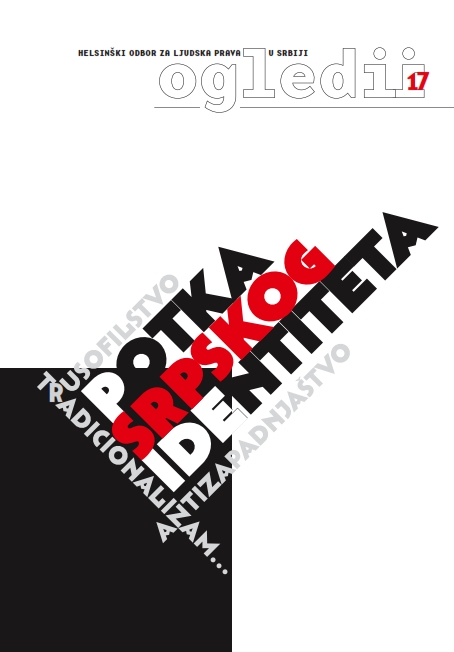
Promene na geopolitičkoj karti sveta koje su se dogodile krajem XX veka, sa tendencijom dalje rekonstrukcije, bile su i jesu do te mere svestrane i sveobuhvatne da su rezultirale potpunom promenom paradigme u sistemu vrednosti poznatom i prihvaćenom posle Drugog svetskog rata, pa i nekoliko decenija i vekova unazad. Jedna od najradikalnijih promena s najupečatljivijim posledicama jeste završetak bipolarne podele sveta. Podela na Istok i Zapad, čije su imanencije bile Sovjetski Savez sa svojim Varšavskim blokom (i istoimenim vojnim savezom), i SAD sa NATO, značile su ne samo višedecenijsko življenje na granici ratnih sukoba, već i deobu na dva sistema vrednosti, dva ekonomska sistema i dve političke opcije razvoja. Pokazalo se posle pola veka postojanja, da je sukobe moguće izbeći i bez postojanja te dve glomazne tvorevine koje je delio sve veći jaz nepremostivih razlika u ekonomskom razvoju. Dok je zapadni deo sveta koračao sve većim i bržim koracima ka prelasku u postindustrijsko, a zatim u informaciono društvo, istočni deo sveta je sve više zaostajao pritisnut rastućim izdvajanjima za trku u naoružanju, da bi krajem osamdesetih godina XX veka konačno posustao i nevoljno, ali nužno iskazao želju da se promeni stanje stvari. To je za posledicu imalo ne samo demontažu sistema i ideologije kao takve, već pre svega raspad jedne super sile i unutrašnje imperije koju je ona predstavljala, tj. SSSR.
More...
U ovom radu razmatraju se ekonomski odnosi Srbije i Rusije na početku XXI veka u kontekstu nominovanog „evropskog puta” srpske politike i tradicionalnog „političkog prijateljstva” srpskog i ruskog naroda, na slovenskoj i pravoslavnoj osnovi. Glavna hipoteza je da su ekonomski odnosi Rusije i Srbije u suštini od marginalnog značaja ne samo za Rusku Federaciju nego i za Republiku Srbiju, te da oni ne daju gotovo nikakvu podlogu za proširivanje saradnje dve države, to jest ne pružaju realističnu perspektivu u kojoj bi privredna saradnja Srbije sa Rusijom bila bilo kakva alternativa njenom uključivanju u Evropsku uniju.
More...
Krajem 2016 – ove jeseni sledi nova, već treća po redu zajednička taktička vežba specijalnih vojnih jedinica Srbije i Rusije. Prva vežba je održana 2014, s epicentrom uvežbavanih postupaka u Sremu, na vojno-školskom poligonu u Nikincima. Druga, naredne 2015, u zoni Novorasijska u Rusiji, tada i uz učešće još i vojnih jednica Belorusije. A, ovogodišnja, koja je već najavljena, ali datum njenog održavanja nije preciziran, vraća se ponovo na teren Srbije, ma da, ovog trenutka još bez objavljene lokacije očekivanog dešavanja. Nema ni drugih, javnosti ponuđenih podrobnosti o predstojećem vojnom vežbanju, osim informacije da će akteri biti jedinice za antiterorističke operacije.
More...
Opredelenje Crne Gore da udje u NATO izazvalo je krajnje negativnu reakciju Rusije. Od kada je dobila poziv za NATO članstvo Rusija je pojačala svoje prisustvo u Crnoj Gori kako bi poslala poruku Zapadu, ali I Srbiji ukoliko krene istim putem. Zvanična Crna Gora I premijer Milo Djukanović na poziv NATO gledaju kao na ogroman uspeh Crne Gore i priznanje za reforme koje ona sprovodi. Djukanović ističe da je to važan korak u pravcu učvršćivanja regionalne, evropske i svetske bezbednosti, koji će takodje ubrzati i put Crne Gore u EU. On posebno ističe da je članstvo u NATO najefikasniji i najracionalniji način da se osigura i nagli priliv investicija, što je za crnogorsku ekonomiju principejelno važan faktor. Djukanović je podvukao da je poziv Crnoj Gori za članstvo istorijski dan, najznačajniji posle referenduma 2006. godine, jer Crna Gora ulazi u ekskluzivni krug zemalja koje su sinonim najboljih vrednosti savremene civilizacije
More...